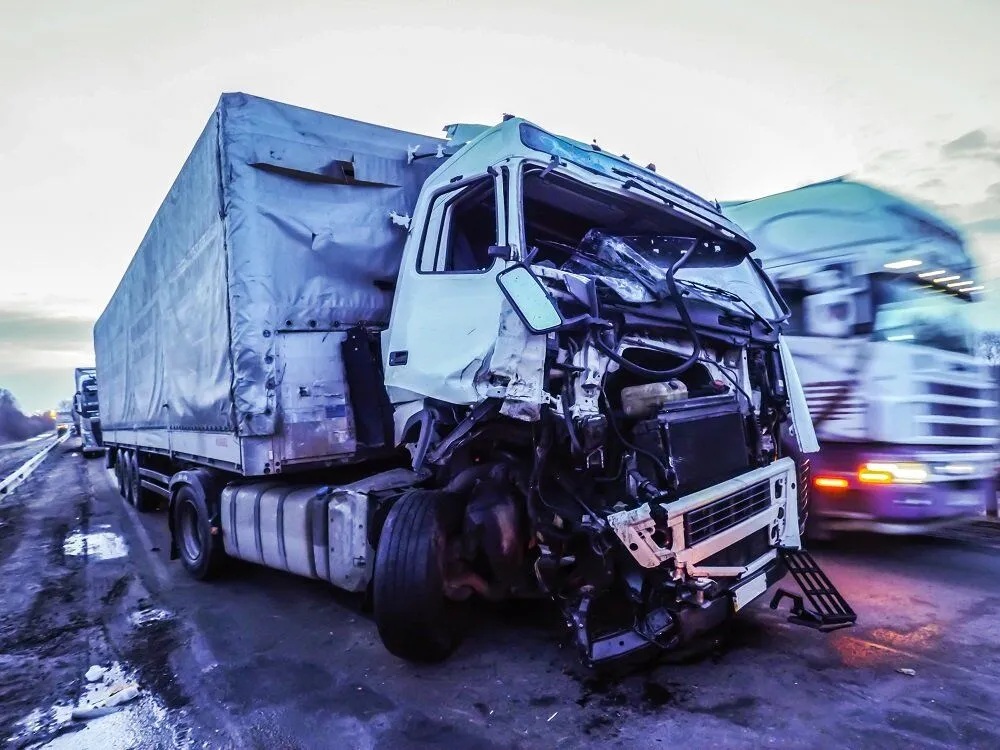Truck accidents often result in devastating consequences, not only for those directly involved but also for families and communities. The sheer size and weight of commercial trucks can lead to catastrophic injuries and extensive property damage, making the legal landscape surrounding such incidents particularly intricate. Determining liability in a truck accident is seldom straightforward; it involves a careful examination of various factors, including the actions of the truck driver, the trucking company’s practices, vehicle maintenance records, and even the role of third parties such as manufacturers or maintenance providers. Unlike typical car accidents, where fault might be more easily assigned, truck accident cases demand a comprehensive understanding of federal and state regulations governing trucking operations and safety standards. This article aims to demystify the complexities of truck accident liability, exploring the various parties that may be held accountable and the legal principles that guide these determinations. By shedding light on these critical aspects, we seek to provide clarity for victims, their families, and legal practitioners navigating the often convoluted aftermath of a truck accident, ensuring that justice is pursued and achieved for those affected.
– Defining Complex Truck Accident Liability Issues
Navigating the realm of complex truck accident liability involves a multifaceted examination of various contributing factors, including the actions of the truck driver, the trucking company, and other involved parties such as vehicle manufacturers or maintenance providers. Each entity may bear a portion of the responsibility depending on the circumstances surrounding the incident. For instance, factors like driver fatigue, improper vehicle maintenance, and adherence to federal regulations can all play significant roles in determining liability. Consequently, establishing clear liability in these cases requires a detailed investigation into the incident’s particulars, including the trucking company’s policies, maintenance records, and compliance with safety standards.
Moreover, the legal landscape surrounding complex truck accident liability can further complicate matters. Various jurisdictions may impose different regulations or standards for trucking operations, thus affecting the evaluation of fault. In addition, the presence of multiple liable parties can lead to intricate litigation processes, involving negotiations among insurers and potential cross-claims. As a result, victims of truck accidents must be prepared to engage with a complex interplay of legal and factual elements to secure appropriate compensation for their losses, making it crucial to work with experienced legal professionals who understand the nuances of complex truck accident liability.
– Key Factors Influencing Liability Determination
Critical elements influencing liability determination in complex truck accident cases include the degree of negligence displayed by the truck driver, the operational practices of the trucking company, and the specific circumstances that led to the accident. Evaluating driver behavior, such as adherence to traffic laws, responsiveness to adverse conditions, and overall compliance with safety protocols, is essential. Additionally, the trucking company’s role cannot be overlooked; failure to properly train drivers, ensure vehicle maintenance, or adhere to industry regulations can establish vicarious liability.
External factors such as road conditions, weather, and the involvement of other vehicles also contribute to the liability assessment. The interplay of these factors often requires expert analysis, including accident reconstruction and examination of regulatory compliance. In many cases, liability may be shared among multiple parties, necessitating a thorough investigation to delineate the extent of each party’s responsibility and ensuring that victims receive appropriate compensation for their losses. Such complexity underscores the importance of legal expertise in navigating the specifics of each case, as the nuances in evidence and jurisdictional regulations can significantly impact the outcome.
– Legal Implications of Truck Accident Claims
In the context of truck accident claims, the legal implications extend beyond the immediate circumstances of the collision. A thorough investigation often reveals potential liabilities not only for the truck driver but also for various stakeholders, including the trucking company, vehicle manufacturers, and even government entities responsible for road maintenance. The complexity of these relationships necessitates a clear understanding of tort law, as claimants must navigate regulations that govern commercial trucking and potential negligence claims. The presence of multiple liable parties can complicate the pursuit of damages, making it crucial for victims to engage legal professionals with expertise in complex truck accident liability.
Furthermore, the legal landscape surrounding truck accident claims is shaped by federal and state regulations that impose strict requirements on trucking operations. Breaches of these regulations, such as hours-of-service violations or inadequate maintenance records, can provide a basis for liability. Claimants must not only gather evidence from the accident scene but also delve into the trucking company’s practices and compliance records. In a legal setting, the complexity surrounding liability can lead to protracted litigation, with insurers and defense attorneys vigorously defending their clients’ interests. As such, the implications of a truck accident can have far-reaching effects, impacting not only the injured parties but also the broader legal accountability of the trucking industry.
In conclusion, navigating the complexities of truck accident liability requires a thorough understanding of the various factors at play. From the actions of the truck driver to the responsibilities of the trucking company and even the role of third-party entities, determining fault can be a multifaceted process. Each accident is unique and influenced by a range of elements, including regulatory compliance, vehicle maintenance, and road conditions. As such, it is crucial for victims and their families to seek expert legal guidance to ensure that all liable parties are held accountable. By doing so, they can better secure the compensation necessary to address their injuries and losses, ultimately fostering a safer environment on our roads.






Leave a Reply